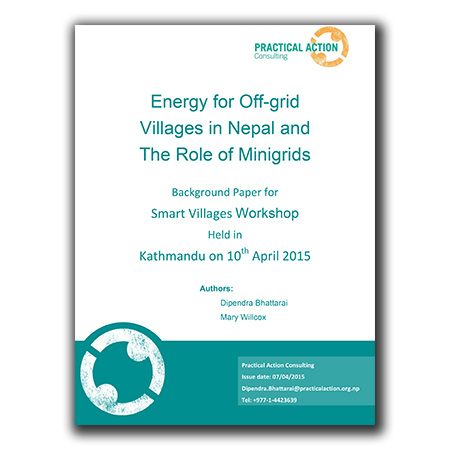The project aimed to develop a product which could:
1. Report on an entire solar system (AC currents, AC voltages, DC currents, and DC voltages), independent of the equipment manufacturer.
2. Divert excess energy directly from the solar panels to an auxiliary load, using historic data and AI algorithms to determine when there is sufficient excess energy.
By the end of the 3 month project, a Mark 1 prototype was developed and tested, proving technical viability of remote monitoring solar systems agnostic to brand of equipment and system specification.
You can read more about the project aims here
Project Achievements:
- Drew up list of technical requirements based on real-world data for most off-grid solar systems in developing countries
- Researched several potential hardware and software solutions to meet technical requirements
- Breadboarded and tested the most promising designs using calibrated DC and AC power supplies.
- Used continuous feedback and iterative improvements, to settle on a final design
- Constructed and tested a ‘Mk1’ prototype, meeting almost all of our initial technical specifications, with a prioritised list of opportunities for improvements in future work.
- Developed several AI algorithms for diversion of excess power from solar panels
All research findings from the project were clearly documented, with design decisions explained, to help guide future work. You can read the full report here.
Unfortunately, we were unable to test our final prototype on one of our solar installations abroad during the 3 month project, due to COVID. However, we still demonstrated the products unique functionality achievable at a low cost, and calculated the potential sustainability impacts. With a clear prioritised plan on future design improvements, we are now looking to make the device more robust (both in software and hardware), and begin long-term use-testing with live data to validate the AI dump load controller logic developed in the UK. For commercialisation, our long-term aim, we will need case-studies showing the financial benefits, to help with relationship and awareness building with key stakeholders.
We believe this device has huge potential to save minigrid installers and community members money, as well as bringing significant environmental benefits through increased energy efficiency of installed systems.
SVRG carried out this 3 month project from January – March 2021 with funding from InnovateUK, the UK’s Innovation Agency.
















